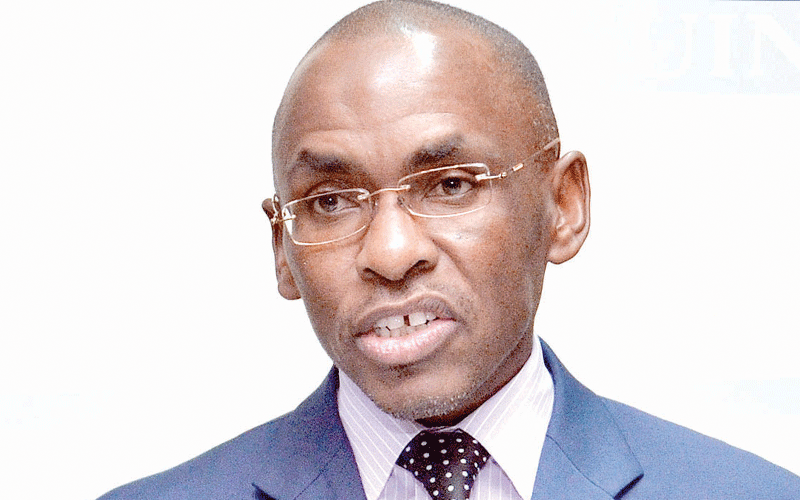How Safaricom is setting up arsenal for Ethiopia licenses
By John Otini, February 18, 2021Safaricom is banking on a number of muscular shareholders, fi nancing partners and economic diplomacy in its bid for two telecom licences in Ethiopia, analysts say.
Kenya’s leading telco will leverage a Sh58 billion credit facility by the US-based International Development Corp, which also comes with the backing of Vodacom and Vodafone.
Coupled with Kenya’s strong diplomatic relations and proximity with Ethiopia, the telco could have a slight head start in the battle for licenses despite more established bidders.
This as Ethiopia seeks to open up the economy to foreign players by auctioning new licenses and selling a 45 per cent stake in state monopoly Ethio Telecom.
“Safaricom has a muscular roster of collaborators from Vodacom, Vodafone, Overseas Private Investment Corporation (OPIC) which transformed into the US International Development Finance Corporation, and an unleveraged balance sheet,” said independent analyst Aly Khan Satchu.
Balance sheet Satchu said the Ethiopia entry could strain its balance sheet but the returns will be worth it.
“The opportunity in the medium term will be worth the heavy lifting, the M-Pesa miss is, however, a disappointment,” he added.
While some media reports indicate that bid in the fi rst round of 12 had been done, Ethiopian Communications Authority tweeted that qualifi cation had not been done.
The companies named in the reports included the Safaricom consortium, Etisalat, Axian, MTN, Orange, Saudi Telecom Company, Telkom SA, Liquid Telecom, Snail Mobile, Kandu Global Communications and Electromecha International Projects.
“We wish to clarify that to date no proposals have been received for the two new telecom licenses, and no prospective bidder has been shortlisted, prequalified nor excluded from participating in the bid process. The RFP process is ongoing,” said the authority.
The capital expenditure in the Ethiopia project is estimated at Sh110 billion expected to top the $1 billion (Sh111 billion) mark, with the DFC loan deal seen as part of the project’s fundraising efforts.
But a charm offensive between the two countries which saw Ethiopian Prime Minister Abiy Ahmed visit Kenya where together with President Uhuru Kenyatta commited to boost trade between the two countries could come in handy.
In December last year, they promised to reduce trade barriers and jointly fund projects, and allocate more resources for infrastructure projects to ensure the seamless fl ow of people, cargo and services between their two countries.
“We are also doing our road networks to ensure there is a seamless connectivity to boost intra-trade in the region,” said Ahmed.
The government of Kenya is the majority shareholder in safaricom alongside Vodacom with 35 per cent each, while Vodafone owns 5 per cent and free float taking 25 per cent.
Analysts at Kingdom Securities say low access to fi nancial services in Ethiopia, a near similar policy landscape and geographical proximity will be key factors that Safaricom will seek to leverage.
Safaricom has already been successful in driving product innovation, its data business has also doing well, with the backing of Vodacom, Vodafone and the World Bank they should make a strong bid,” said Willis Nalwange.
Despite Safaricom’s smaller balance sheet compared to key contenders, analysts say that it’s the ability to properly deploy the capital that matters, adding that Safaricom does not have limitations in fundraising.
“Safaricom has proved its innovativeness and rapid response to the market, it has also successfully navigated Kenya’s political environment quite well, this are some of the soft skills they will need,” said an analyst at Kestrel Capital who sought not to be identifi ed.
He said Safaricom having advised Ethiopia Telkom on building a policy framework for mobile will be in a position to understand the policy environment.
Safaricom with the help of Vodafone and Vodacom reached a deal to borrow up to Sh58 billion from the US International Development Finance Corporation (DFC) to buttress the telco’s bid. Prove lucrative The bidders will deploy anything at their disposal to win the more than 100 million population market that could prove lucrative if the political and other risks are minimised.
Ethiopia has the second-largest telco market in Africa after Nigeria with DRC, Tanzania and Kenya following in that order. The winner of the fastest growing market on the continent will also solidify their position as a major player at a time when disposable incomes are rising.
Safaricom made revenues of Sh240 billion in the last financial year compared to Sh1 trillion for MTN and more than Sh1 trillion for Orange.
